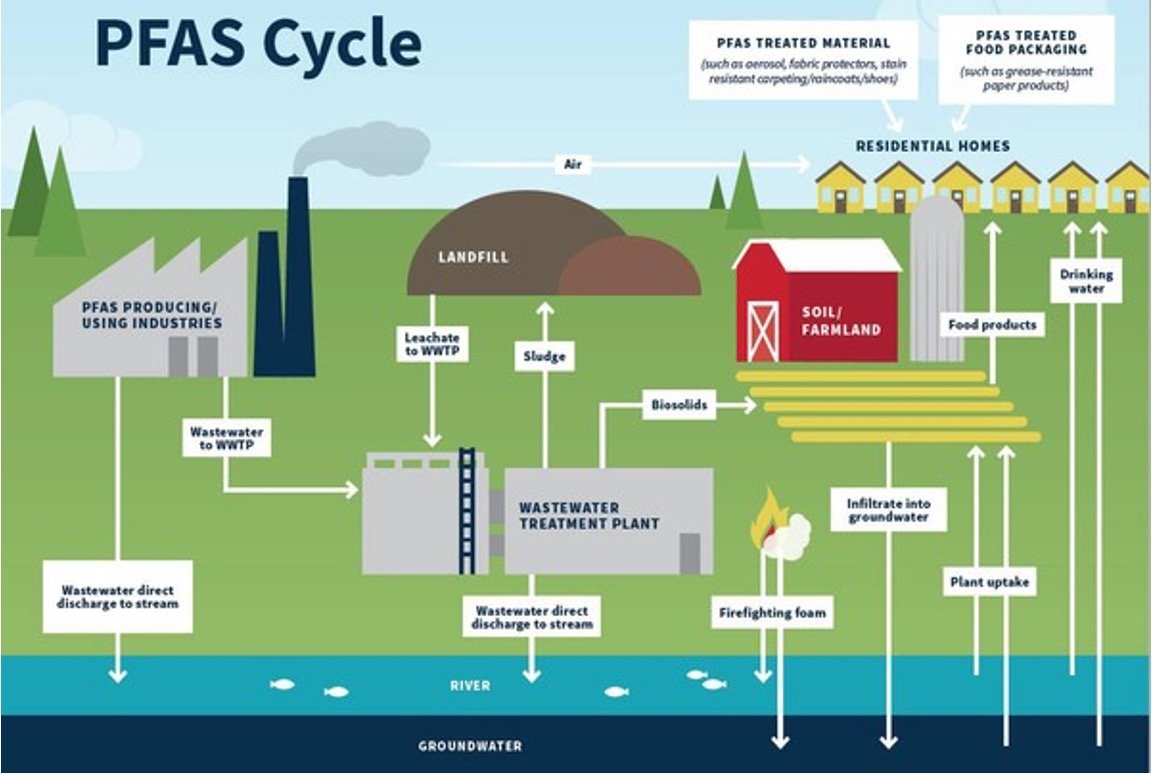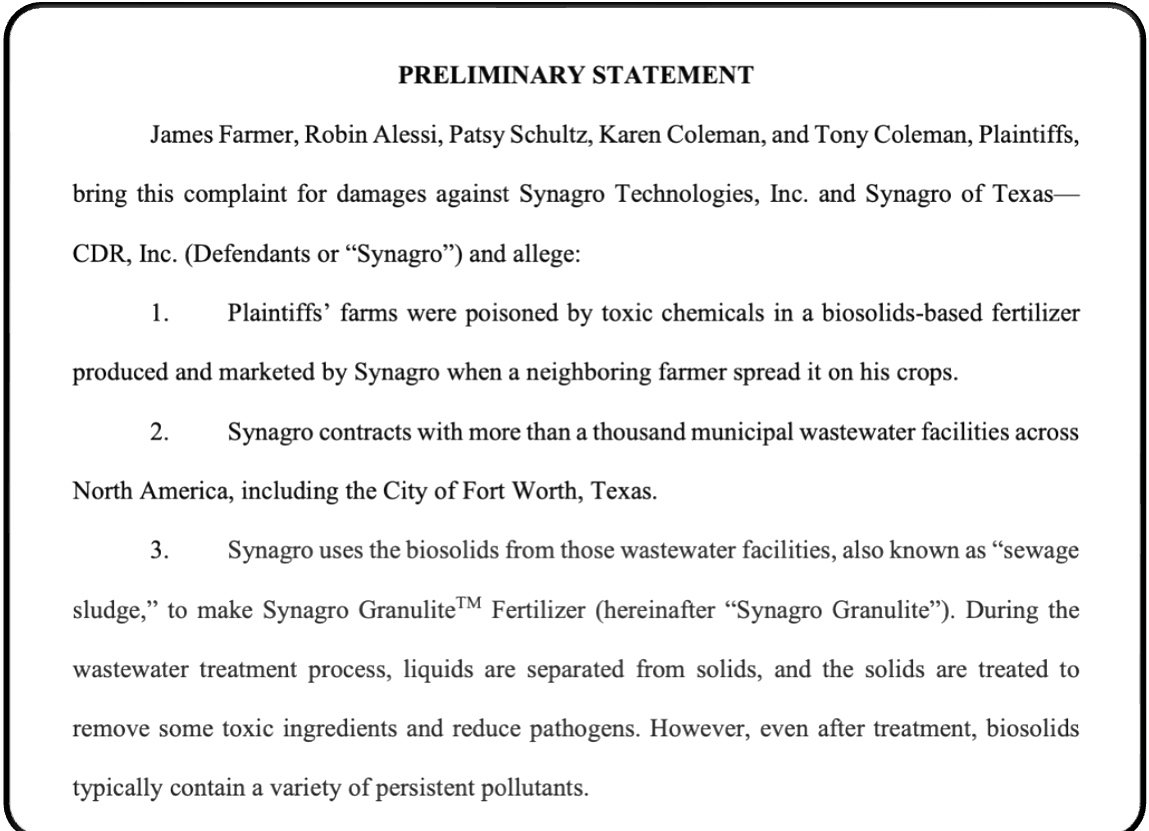Mounting Litigation Over PFAS in Biosolids
/A series of recent New York Times pieces have sounded the alarm about PFAS chemicals in biosolids on agricultural ground. First, there was the article on August 31, 2024 entitled “Something’s Poisoning America’s Land. Farmers Fear ‘Forever’ Chemicals.” Two articles on September 21, 2024 later heightened the level of concern: “Her Children Were Sick. Was It ‘Forever Chemicals’ on the Family Farm?” and “What We Know (and Don’t Know) About ‘Forever Chemicals’ in Food.” I gave a presentation called “Mounting Litigation Over PFAS In Biosolids” in Chicago at the National Forum for Environmental and Toxic Tort Issues this fall. This blog presents a few takeaways from my discussion and the recent NYT coverage of biosolids and PFAS.
So how concerned should Indiana landowners and the lawyers who represent them be? As with all respectable legal questions, the answer is “it depends.” Biosolids (or “biosludge”) are the solids left after a wastewater treatment plant (WWTP) processes water received from industrial and other users. During the WWTP process liquids are separated from solids. The solids are treated to remove most toxic ingredients and produce a nutrient-rich product known as biosolids. Some biosolids are incinerated or disposed of at landfills, but according to EPA, slightly over half of the biosolids produced in the United States are used as fertilizer for land application on agricultural fields. Because WWTP processes do not remove PFAS, those chemicals can be left in the biosolids and unknowingly end up being spread on fields. (Of course, not all biosolids contain PFAS!)
As pointed out in the NYT articles, a problem occurs when crops on fields take up PFAS present in the biosolids applied as fertilizer. This issue can be exacerbated if livestock consume those crops. In 2022, a beef cattle farmer in Michigan was put out of business when his cattle tested positive for PFAS after grazing on land which historically had received biosolids as a source of fertilizer. Numerous farms in Maine have been shut down after testing positive for PFAS. Maine and Michigan are two of the only states with laws specifically addressing PFAS in biosolids while many states (including Indiana) wait for the EPA to announce its plans for federal regulation.
Clean Water Act § 405(d) requires EPA to establish numeric limits and management practices to protect public health and the environment from the reasonably anticipated adverse effects of pollutants during the use or disposal of biosolids. Section 405(d) also requires EPA to review its biosolids regulations at least every two years to identify additional toxic pollutants that may be present in biosolids and then promulgate regulations for those pollutants if sufficient scientific evidence shows they may adversely affect public health or the environment. As of the date of this article, the EPA has not established numeric limits or monitoring or reporting requirements for PFAS in biosolids. In its 2021 and 2023 Roadmap progress reports, EPA said it would complete, by winter 2024, a risk assessment for PFAS in biosolids, which it will use to determine whether to regulate these contaminants in biosolids.
Farmer v. Synagro complaint
Nationwide, at least two lawsuits have been filed related to alleged biosolids PFAS contamination (there are many lawsuits related to PFAS contamination in general). In Farmer v. Synagro, Case No. C-03-CV-24-000598, Baltimore County, MD, (1st Amended Complaint Feb. 27, 2024), farmers and landowners alleged that Synagro’s fertilizer product contained PFAS and contaminated the plaintiffs’ farm properties. The defendant filed a motion to dismiss based on improper venue and forum non conveniens, which is currently pending before the judge. In Farmer et al. v. EPA, that same group of aptly named plaintiffs filed a citizen suit against the EPA, claiming the EPA failed to perform its non-discretionary duty to identify and regulate toxic pollutants in biosolids as required by the CWA. The EPA’s motion to dismiss (claiming the alleged duties are discretionary) is still pending as of the date of this article. Landowners and lawyers alike are watching these two cases as possible indications of the future of biosolids litigation.






